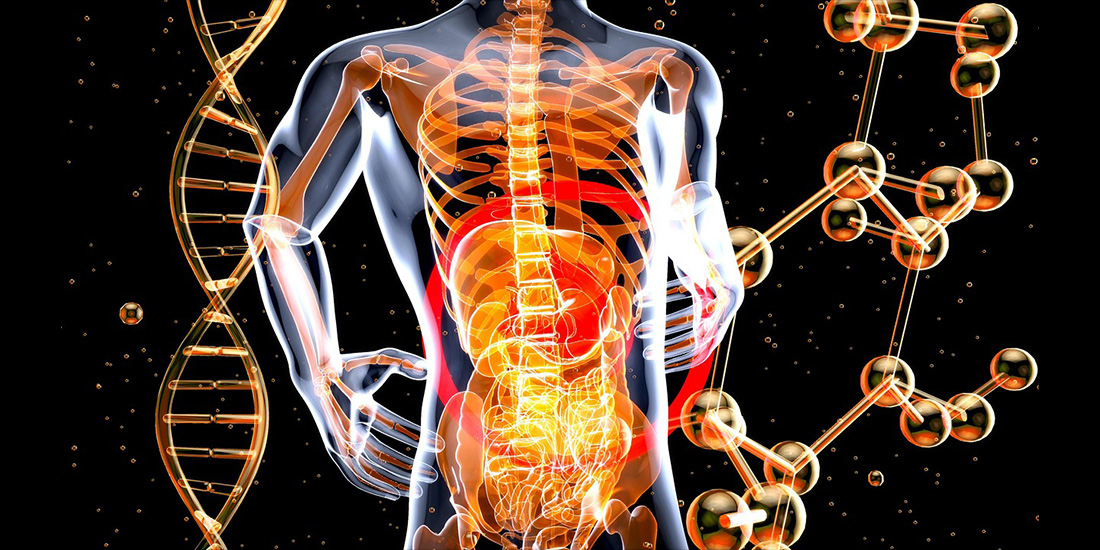In the ever-evolving world of health and wellness, one topic has been gaining significant attention: gut health. Once considered a niche area of medical interest, it’s now acknowledged as a central player in determining the overall well-being of an individual. From digestion to mental clarity, immune function to mood regulation, the state of your gut can influence nearly every system in your body.
But what exactly makes gut health so essential? Why are researchers, nutritionists, and health enthusiasts so focused on this complex inner ecosystem? To understand that, we need to go deep into the gut—both literally and metaphorically—and explore its profound role in the interconnected systems of the human body.
Understanding the Gut Microbiome
At the heart of gut health lies the gut microbiome, a collection of trillions of microorganisms, including bacteria, viruses, fungi, and other microbes residing in your digestive tract. While this may sound unsettling, these microscopic organisms are not enemies. In fact, a healthy microbiome is critical for a range of biological processes.
Each person’s microbiome is unique, shaped by factors like genetics, environment, diet, and lifestyle. This internal ecosystem works behind the scenes, breaking down food, synthesizing vitamins, regulating hormones, and helping the immune system to identify threats.
An imbalance in the gut microbiome—commonly referred to as dysbiosis—can lead to a variety of health issues. These can manifest as digestive disturbances, skin problems, fatigue, mood disorders, autoimmune diseases, and even cognitive impairments.
Gut Health and Digestion
At its most basic level, the gut is responsible for breaking down food into nutrients that the body can absorb and use. The digestive process involves a finely tuned coordination between stomach acids, enzymes, and gut flora. When your gut is functioning properly, food is digested efficiently, nutrients are absorbed effectively, and waste is eliminated without difficulty.
When gut bacteria are out of balance, this process can become compromised. People may experience bloating, constipation, diarrhea, acid reflux, or food intolerances. These are more than just annoyances—they’re signs that your gut might be in distress and in need of attention.
The Gut-Brain Connection
The concept of the “gut-brain axis” refers to the bidirectional communication system between your gut and your brain. This connection is so profound that the gut is often called the “second brain.” It contains an entire network of neurons—over 100 million—that form the enteric nervous system (ENS).
This system doesn’t just handle digestion; it plays a major role in emotions and mental health. The microbiome produces neurotransmitters such as serotonin, dopamine, and gamma-aminobutyric acid (GABA), which are crucial for regulating mood, sleep, and focus. In fact, around 90% of the body’s serotonin is produced in the gut.
Emerging research links poor gut health to anxiety, depression, and even neurodegenerative disorders like Parkinson’s and Alzheimer’s. These findings highlight how a healthy gut can contribute to a stable, balanced mental state and cognitive clarity.
Immunity Begins in the Gut
Approximately 70% of the body’s immune system is housed within the gut. This isn’t a coincidence. The gut’s role in protecting the body from harmful invaders is one of its most critical functions.
The gut wall acts as a barrier, allowing nutrients to pass through while keeping pathogens out. A healthy gut microbiome helps reinforce this barrier and trains the immune system to distinguish between friend and foe. When this balance is disrupted, the barrier becomes “leaky,” leading to a condition known as leaky gut syndrome. This allows toxins and undigested food particles to enter the bloodstream, which can trigger widespread inflammation and autoimmune responses.
A resilient gut supports immune function by promoting anti-inflammatory bacteria and suppressing harmful microorganisms. When your gut is healthy, your body is better prepared to fight off infections and maintain homeostasis.

Weight Management and Metabolic Health
Struggling with weight management? The answer might lie in your gut. Studies have shown that individuals with diverse and balanced gut bacteria tend to have a healthier weight and metabolic profile compared to those with imbalanced gut flora.
Gut microbes play a role in regulating appetite and metabolism. Certain bacteria influence how calories are extracted from food and how fat is stored. They also impact hormones related to hunger, such as ghrelin and leptin. A disrupted microbiome can lead to cravings, overeating, and difficulty losing or maintaining weight.
Moreover, gut imbalances are now being linked to insulin resistance, type 2 diabetes, and obesity. Supporting a healthy gut with fiber-rich, whole foods and prebiotics can lead to better blood sugar control and more efficient metabolic function.
Skin and Gut Connection
Your skin is often a mirror of your internal health, especially gut health. Conditions like acne, eczema, psoriasis, and rosacea have all been linked to gut imbalances. The inflammatory signals generated by a leaky or inflamed gut can show up on your skin in surprising ways.
A clean, functioning digestive system helps the body detoxify naturally, and gut bacteria can influence how the body reacts to allergens and inflammatory agents. Balancing your gut can reduce systemic inflammation, leading to clearer and healthier skin over time.
Mood, Sleep, and Emotional Resilience
We often associate emotional wellness with external circumstances, but internal biochemistry plays an equally important role. The gut produces and regulates hormones and neurotransmitters that affect how we feel. An unhealthy gut can lead to mood swings, irritability, and chronic fatigue.
Sleep, too, is tied to gut health. Disruptions in your gut bacteria can affect your circadian rhythm, making it harder to fall or stay asleep. Additionally, a poorly functioning gut can increase cortisol levels, a stress hormone that interferes with sleep and contributes to anxiety.
By nurturing your gut with a supportive diet, stress management techniques, and mindful movement, you can improve your mood and enjoy deeper, more restful sleep.
How to Support a Healthy Gut Naturally
One of the most powerful ways to improve gut health is through dietary and lifestyle choices. Eating a diverse range of whole, plant-based foods can fuel beneficial bacteria and increase microbial diversity. Prebiotic-rich foods like garlic, onions, bananas, and oats serve as nourishment for gut bacteria, while fermented foods like yogurt, kefir, kimchi, and sauerkraut introduce probiotics into the system.
Hydration is essential for digestion and the elimination of waste. Reducing sugar, processed foods, and excessive alcohol can prevent harmful bacteria from flourishing. Regular exercise not only aids digestion but also promotes microbial diversity and gut motility.
Equally important is managing stress. Chronic stress can damage the gut lining and suppress beneficial bacteria. Incorporating practices like mindfulness, deep breathing, or gentle yoga can support both mental and digestive health.
When to Seek Professional Help
While many gut issues can be improved through lifestyle changes, persistent symptoms may require the guidance of a healthcare professional. Functional medicine practitioners and gastroenterologists can run diagnostic tests to assess gut health and provide personalized treatment plans.
They may recommend targeted probiotics, elimination diets, or healing protocols designed to restore balance. Ignoring gut symptoms or self-diagnosing can delay treatment and worsen underlying conditions. A proactive approach ensures you address any dysfunction before it escalates into more serious health concerns.
The Future of Gut Health Research
Science is just beginning to unlock the secrets of the gut. Ongoing studies are exploring how microbiomes can be manipulated to treat chronic diseases, enhance mental health, and improve longevity. Personalized nutrition based on microbiome analysis is already becoming a reality, and the future holds promise for even more targeted interventions.
As research deepens, one thing remains clear: gut health is not a fleeting trend but a foundational element of human wellness. It’s an area that intersects with virtually every aspect of health, making it worth prioritizing in daily life.
Conclusion:
Your gut is more than a digestive organ—it’s a central command center for your overall health. From influencing your mood and immune system to shaping your skin and metabolic profile, the gut plays a pivotal role in how your body functions and feels.
Caring for your gut means caring for yourself on the most holistic level. By making conscious choices in what you eat, how you manage stress, and how you live each day, you’re not just supporting digestion—you’re nurturing a foundation for lasting wellness.
Gut health isn’t a one-size-fits-all journey. But one thing is certain: when your gut thrives, so do you.


